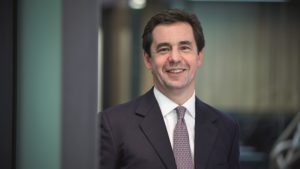There has been an undeniable shift in the ESG ecosphere – and it is worth paying attention to. While investment markets seldom stand still, the recent changes across the environmental, social and governance (ESG) spectrum have combined to suggest a coming of age – or, if you prefer, a getting of wisdom teeth.
From asset managers through to end-investors – and via regulators – there now seems to be a maturity about what the sector is, and how to use it, compared with its earlier iterations.
The unbridled optimism and binary criteria that dominated ESG investing a decade ago has changed – for the better – and every type of stakeholder now has a much more realistic grasp about what sustainable/ethical investing is, as well as its limitations. Understanding this matters right now because the knocks ESG investing is receiving need to be seen as part of its development and not its downfall.
Proactive choice
Passive fund flow data for Europe for 2022 shows ESG-aligned products made up some two-thirds (65%) of all exchange traded fund flows on the Continent, despite their underperformance during the year.
There are two potential reasons for this outsized allocation to ESG compared to whole-of-market funds in spite of poorer returns: either retail investors are behind the curve, or this cohort is now making a conscious and proactive decision to choose sustainable investments.
While it is probably a combination, there is an increasing chance it is the latter, suggesting a maturation of clients’ approach to ESG – essentially, they are choosing this approach rather than having it foisted upon them by asset managers and advisers.
This chimes with our long-held view of ESG – namely that it is a ‘filter’ (a characteristic that clients choose to apply to their investments for reasons of conscience, not of performance) and not a ‘factor’ (a characteristic whose historic performance suggests it does outperform the broader market over the long term). Alongside clients being more proactive in their approach to ESG, there is also a growing honesty about what sustainable investing is, and its limitations, from asset managers.
Sparking debate
An interesting development at the end of 2022 was Vanguard’s move to exit the Net Zero Asset Managers (NZAM) initiative, aimed at coalescing the world’s money managers around a 2050 net-zero target and global temperature reductions. While critics of Vanguard’s move decried it as a response to political pressure, it highlights an interesting point.
Vanguard maintains its exit from NZAM “will not affect our commitment to helping our investors navigate the risks climate change can pose to their long-term returns”. Essentially, the group is arguing that being part of a climate-related organisation does not instantly make it a sustainable asset manager, and that trying to suggest everything a global asset manager does is ‘sustainable’ is naive.
Instead, it wants its clients to choose sustainable investments if they want them – and it perhaps also wants more latitude to identify what is and is not a sustainable investment, instead of having to accept a definition from a body such as NZAM.
Regulatory sophistication
Organisations such as NZAM and initiatives such as the UN Principles for Responsible Investment provide a vital role – and they too have helped bring about a maturation where ESG is concerned.
A recent update of the Target Setting Protocol that sets out a pathway for emission reductions by Net Zero Asset Owners Alliance members recommends investors “encourage investee companies to prioritise emission reductions”, and focuses on so-called “just transitions”, whereby any reallocation of investment for environmental purposes does not have an outsized and negative impact on the local community.
This appreciation that asset owners can steward investee companies to prioritise carbon reduction and other environmentally beneficial developments is a far more grown-up approach than binary divestment themes that previously dominated the ESG discipline.
At the same time, macro regulations are also ensuring the bar for claiming an investment fund is genuinely sustainable or ethical, has been raised substantially. In the final quarter of 2022, asset managers downgraded funds holding €175bn (£155bn) from the European Union’s higher ‘Article 9’ classification of ESG funds, according to Morningstar data.
The EU’s Sustainable Finance Disclosure Regulations (SFDR) aim to tackle misleading claims from asset managers, and these became more stringent in January, prompting asset managers to assess more critically which of their products truly hit the higher sustainability threshold.
Balanced approach
Everyone accepts the world needs to change but there is now a pragmatic acknowledgement this will not happen overnight. Many investors appreciate that maintaining exposure to the likes of certain oil and gas firms is important for the functioning of our economy as it exists now, but also that investor capital can be used to galvanise change within such businesses to help hasten a lower-carbon future.
This is neatly exhibited by the share price performance of Woodside Energy Group, the oil and gas operator that absorbed BHP’s petroleum arm. From 10 June last year, when the merger was finalised, to the end of March, Woodside shares rose nearly 7.7%, while BHP’s were up nearly 9%. This suggests that BHP shareholders, who received shares in Woodside as part of the deal, have largely held onto the oil and gas firm’s stock.
Separately, Shell increased investment in its renewables division by 47% between 2021 and 2022. This is of course less than it has spent on its oil and gas division but the disparity could be greater without pressure from an active investor base that includes some forward-thinking sustainable investors.
Despite this progress, ESG, impact and socially responsible investing are still nascent disciplines. Taxonomy is developing, rating dispersion is huge and choices are complex. Yet we have definitely moved from blind optimism to reasoned discussion – and that is a key step.
Mark Northway is an investment manager at Sparrows Capital







